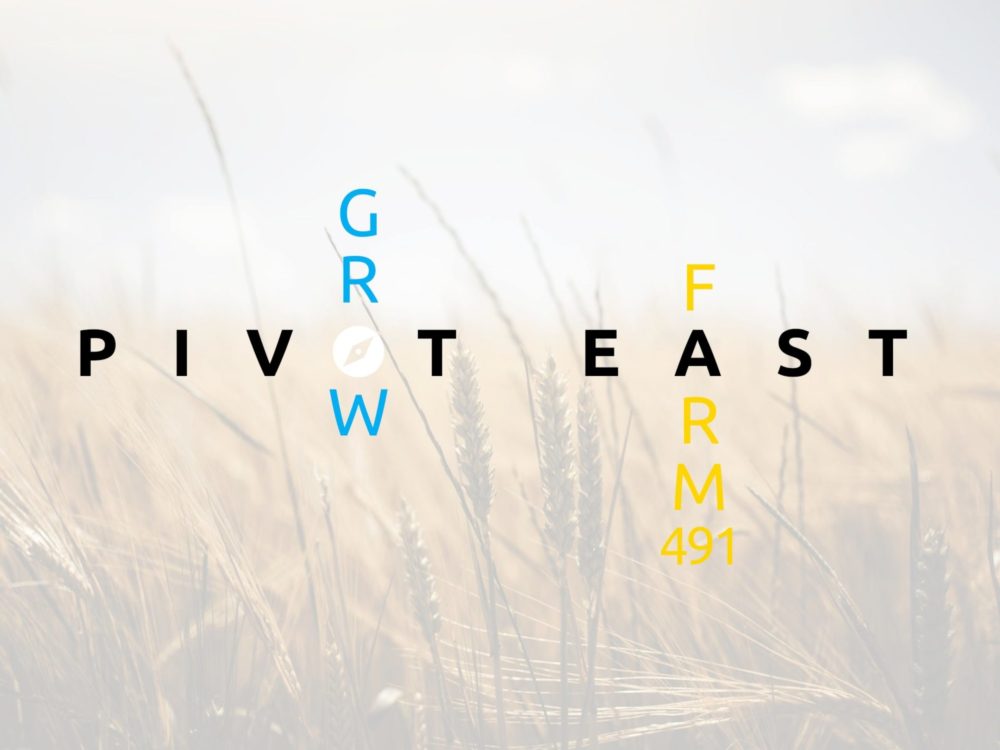GROW, AgFunder’s global impact accelerator, and Farm491 — the agritech incubator and innovation space located at the UK’s Royal Agricultural University — are unveiling a new program to help UK and EU agrifoodtech startups expand into the Asia-Pacific region.
Named Pivot East, the program is a world first. Focused on improving food resilience, environmental sustainability, and human health and wellness, it’s designed to assist UK and EU agrifoodtech entrepreneurs rapidly validate their companies’ fit for the Asia-Pacific market. It will also provide them with a roadmap for setting up an overseas presence.
There has never been a more pressing time for businesses to rapidly adjust and move into alternative markets. Pivot East presents a unique opportunity for UK and EU innovators to be guided through this process by industry experts, set up a presence in the region, and rapidly accelerate their growth.
Developed with early-stage and growth startups in mind, Pivot East will help entrepreneurs take an agile approach to developing, testing, and adapting their business models for maximum regional impact.
Starting at Farm491 in Cirencester, UK, participating entrepreneurs will be encouraged to think big. Through workshops and one-to-one support, companies will delve deep into the intricacies of their business and create detailed roadmaps for the Asia-Pacific market.
Program participants will then head to GROW in Singapore, where they’ll validate their roadmaps through in-market customer discovery, networking with the local agrifood tech ecosystem, and pitching to GROW’s community of investors.
GROW is a key partner under Enterprise Singapore’s Startup SG Accelerator initiative. Enterprise Singapore is the government agency championing enterprise development in the city-state, including growing Singapore as a startup hub. It works with accelerators such as GROW to groom promising agrifoodtech startups, contributing to the vibrancy of Singapore’s agrifood ecosystem.
A stone’s throw from the world’s two largest consumer markets, China and India, Singapore is a natural springboard for startups planning to expand into the region. It also sits in the heart of Southeast Asia, which saw investment in regional agrifood startups boom by 33% year-on-year to reach $423 million in 2019, according to AgFunder’s 2020 ASEAN Agrifoodtech Investing Report. Singapore is ranked first among countries in the region, having attracted US$177 million funding across 37 deals.
“GROW’s value proposition is about helping agrifoodtech startups achieve global growth and impact to enhance food resilience and sustainability worldwide,” said Joshua Soo, head of innovation and strategy at GROW.
“We are nurturing partnerships like this one with Farm491 to build corridors that will connect startups to key agrifoodtech hubs across the world. Our vision is to facilitate the international flow of startup activity and investment, support stellar founders globally, and catalyze novel technology that will shape a more sustainable food system.”
For entrepreneurs championing sustainable food and farming, Asia has to be a target. It’s the world’s fastest growing market and will soon account for 60% of global food consumption, according to PwC and Temasek. A particular focus of Pivot East is to commercialize European innovation in food and agriculture technology and catapult it into the global arena, allowing Asia-Pacific consumers to benefit from world-leading research.
“There are fantastic innovations happening in the UK and EU around the future of farming and food, but to be scalable they need to find new markets that work for them,” said Luke Halsey, head and program manager at Farm491.
“With Pivot East, we are excited to partner with a like-minded accelerator in GROW to really help companies rethink traditional growth strategy and find unconventional routes to scale, while making a meaningful impact on eliminating food insecurity, protecting biodiversity, and improving human health.”





